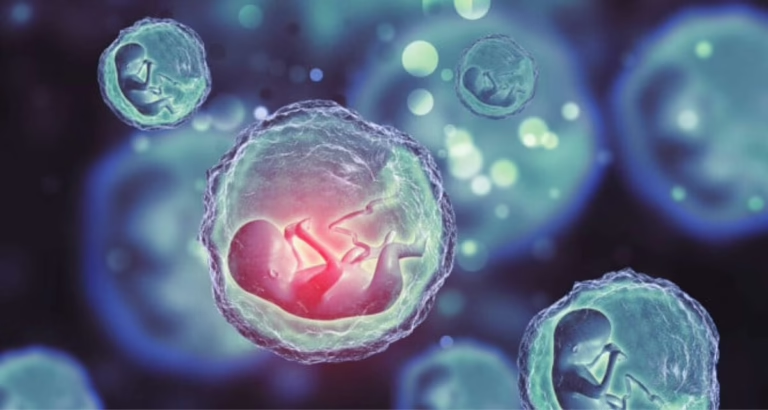In a relentless pursuit of quick financial gain and social recognition, some university students in Akwa Ibom have resorted to selling parts of their bodies-such as sperm, blood, and eggs-at IVF clinics. Motivated by intense campus rivalry and misguided dreams of easy riches, these youths are risking their futures, often oblivious to the severe consequences that lie ahead: physical harm, dashed ambitions, and lifelong remorse. In this feature, INIOBONG EKPONTA reveals how the lure of instant money might lead these students to wander from one spiritual sanctuary to another, desperately seeking redemption for choices that could cost them everything.
While the harsh economic realities faced by many impoverished families undeniably exert immense pressure on young people, a more complex and disturbing issue is at play. Investigations by LEADERSHIP Weekend across various tertiary institutions in Akwa Ibom State show that financial hardship alone does not explain this trend; even students from relatively comfortable backgrounds are ensnared in this perilous practice.
At the University of Uyo (UNIUYO) town campus along Ikpa Road, students openly express their struggles with socio-economic difficulties affecting their education. Yet, the desire for rapid wealth and elevated status is pushing many beyond ethical boundaries and self-care.
This phenomenon transcends mere survival instincts; it reflects a toxic environment fueled by fierce competition, peer influence, and warped value systems infiltrating campus culture. Although economic hardship contributes, it cannot fully justify the reckless decisions that jeopardize lives and futures. Alarmingly, some students-regardless of their financial standing-are voluntarily commodifying their bodies at IVF centres, driven by greed and desperation to “keep pace” or advance ahead.
This downward spiral threatens to erode the very foundation of youth potential in Akwa Ibom and beyond.
When approached by our correspondent, one student, Eno Uffot, shared his plight:
“Last semester, I almost dropped out because I couldn’t afford my course registration fees. My parents are retired and survive on a small pension.”
He continued, “Thankfully, a local government councillor from my ward in Oruk Anam stepped in to cover one semester’s fees.”
Further inquiries revealed that many students, alongside other young people, resort to illicit activities such as cultism, armed robbery, and violent crimes to cope with their harsh realities.
At Akwa Ibom State University (AKSU), Ikot Akpaden campus in Mkpat Enin LGA, sources disclosed that some discreet students operate internet fraud rings, commonly known as “Yahoo boys.” Others engage in selling “body resources” like sperm, blood, and eggs, which are in high demand at In-Vitro Fertilisation (IVF) clinics.
A 300-level Biochemistry student at UNIUYO explained, “Selling these body parts is a quick way to earn money in a few sessions without risking arrest, unlike armed robbery, kidnapping, or internet scams.”
Another participant added, “The money helps cover rent, tuition, course fees, and other personal expenses.”
A senior nursing officer at Ikot Ekpene LGA General Hospital noted that the increasing number of childless couples and single women eager to conceive before menopause is driving the demand for IVF services across the state.
“Due to high client volume, many medical consultants have established IVF centres as private ventures within their clinics, even while employed by government hospitals at state and federal levels,” the officer explained.
Similarly, a senior medical practitioner at the University of Uyo Teaching Hospital (UUTH), who requested anonymity, revealed, “Some colleagues run these centres to supplement their modest government salaries.”
The medic attributed many unethical practices among healthcare workers to the “inadequate compensation system for medical staff in Akwa Ibom.”
“There are ‘baby factories’ scattered across the state’s rural areas, where nurses, midwives, and other staff collaborate to run facilities that artificially inseminate young girls with sperm and eggs purchased from young men,” he disclosed.
“In some cases, young boys are directly involved, enticed by offers of free sex from human trafficking networks that pay them after impregnating the girls.”
“These girls are monitored throughout pregnancy until delivery, after which they are paid off, and the babies are sold to clients. Law enforcement has apprehended many perpetrators and handed victims over to NAPTIP for family reunification,” a senior police official explained.
“But do those trading their bodily resources fully grasp the long-term repercussions beyond the immediate cash?” he questioned.
Beyond violating natural birth processes, religious communities have voiced grave concerns about the youth-who represent the most active demographic-being unaware of the physical harm such practices can inflict, potentially hindering their growth and development.
While Professor Idongesit Patrick Solomon, an expert in Animal Reproductive Physiology at UNIUYO, regards these methods as valid solutions to fertility issues in humans and animals, Catholic leaders strongly oppose them. They advocate for adoption as a preferable alternative to artificial reproduction.
At a recent Catholic Bishops’ Conference in Ikot Ekpene LGA, church authorities expressed deep unease over the rising trend of young people donating blood, sperm, and eggs to desperate individuals seeking parenthood, regardless of the children’s origins.
In numerous government and private hospitals, selling blood has become a common survival strategy among underprivileged youths amid economic hardship, presenting itself as a seemingly legitimate escape from poverty.
More troublingly, a senior medical consultant, who wished to remain unnamed, disclosed that the sale of blood, sperm, and eggs is widespread among young people, especially university students, raising urgent ethical and health concerns.
Many youths turn to selling vital bodily resources because of dire circumstances. Some cannot afford tuition due to the loss of parents, while others depend on retired relatives or single mothers struggling without stable income.
“What we found in some cases is both shocking and, in a way, fortunate,” said a healthcare professional. “Many donors assume they are healthy because they appear well, but blood screenings reveal that most have never undergone proper health checks. Alarmingly, many tested positive for infections like HIV/AIDS or other sexually transmitted diseases.”
“In such cases, we provide counseling and recommend antiretroviral therapy, which is freely available,” explained a senior nurse managing a private clinic in Uyo.
He added, “Though initially distressed, many patients come to understand that these conditions are manageable with strict adherence to treatment.”
Meanwhile, Catholic authorities have raised alarms about the unregulated expansion of IVF clinics in Nigeria. Archbishop Lucius Iwejuru Ugorji urged the federal government to implement strict regulations to shield citizens from exploitation and serious health hazards, noting that this issue is nationwide.
The Archbishop highlighted the dangers posed by the proliferation of fertility clinics, many operated by unqualified and unlicensed individuals, leading to financial abuse, severe medical complications, permanent infertility, and even fatalities. “This situation demands urgent government intervention and enforcement of ethical standards,” Archbishop Ugorji emphasized.
He condemned the moral implications of IVF, particularly the “commodification of human life,” lamenting that “even university students now sell their eggs and sperm to fertility centres for money,” a practice the Church deems morally unacceptable.
“It is crucial to reiterate the Church’s teaching that IVF is profoundly immoral,” he stated, explaining that “it separates the unitive and procreative purposes of marital relations and disregards the inherent dignity and right to life of every human being and embryo.”
“Any practice that commercializes or disposes of embryos, or uses them for experimentation, is gravely wrong. Such shortcuts to cash can result in lifelong infertility and other health issues,” he warned.
He reaffirmed the Catholic Church’s opposition to IVF and called on government and relevant authorities to establish stricter oversight to curb unethical practices and uphold the sanctity of human life.
“God created man in His own image,” he reflected, questioning how genuine maternal bonds can form when genetic materials are artificially combined under forced circumstances to create a family unit.
Also voicing concern, Dr. Aniekan Peter, chairman of the Nigerian Medical Association (NMA) in the state, acknowledged that these unethical practices have become widespread but stressed that they are unacceptable.
“There are laws prohibiting such activities. Donations of human materials-whether blood, sperm, or eggs-must be voluntary and not commercialized,” he stated.
He warned of severe penalties for offenders and urged a reconsideration of these practices as enforcement of existing laws intensifies.
LEADERSHIP Weekend cautions that the exploitation of vulnerable youths by unscrupulous medical personnel represents a betrayal of the medical oath to protect and heal. By preying on desperate students and young people, often unaware of the long-term health risks, these practitioners endanger lives and perpetuate a vicious cycle of abuse and exploitation.
This deplorable conduct demands immediate denunciation and firm action from regulatory agencies and government bodies.
Healthcare professionals must be reminded that their duty is to preserve health and dignity, not to profit from hardship. It is imperative to implement stringent oversight, impose harsh sanctions on violators, and provide comprehensive education to safeguard young people from being reduced to mere sources of biological commodities.
If left unchecked, this exploitation will continue to devastate the futures of countless youths, transforming their aspirations for a better life into tragic stories of suffering, remorse, and lost potential. It is incumbent upon the government, health regulators, and society at large to act decisively now to halt this destructive trend before more lives are irreparably harmed.

















